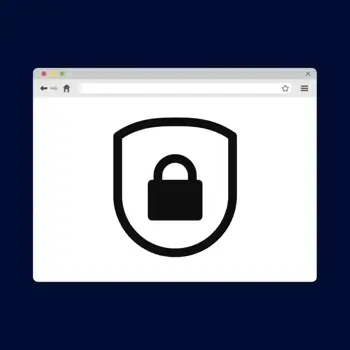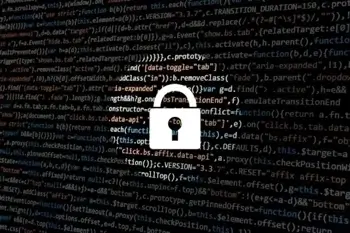Seven Ways to Hide My IP Address
It’s difficult to be anonymous on the Internet. Users surfing the web have much of their traffic monitored and recorded thanks to their IP address, which is a unique identifier assigned to each device online. However, hiding your IP can help give you back your anonymity, security, and privacy online. In this article, we’ll explain how to hide your IP address – and how to do it for free.
Why hide my IP address?
While hiding your IP address isn’t a necessity, there are a number of legitimate reasons why you may want to change your IP address.
- Security. You may be using an unsecured connection and don’t want to risk having your private information exposed.
- Privacy. Quite simply, you may not want your activity or browsing habits tracked – whether it be by someone else on the same network, by advertisers and companies, or by the government.
- Accessibility. If you're visiting a school or working for a company that restricts or filters web content for users on the WiFi, hiding your IP address can help evade these annoying restrictions. Furthermore, you may want to access content that is available only to people in certain areas or countries.
All of these reasons have nothing to do with illegal activity and everything to do with protecting yourself and your online activity.

How to hide my IP address
There’s no one perfect way to hide your IP address. However, users who want to do so have several options. The three best ways to change your IP address are by:
- using a VPN
- using a proxy server
- contacting your Internet service provider
All three work differently. Users can compare the three for their trade-offs regarding security, cost, and privacy.
Use a VPN
The best way to hide your real IP address is using a virtual private network, or VPN. It works as a middleman between your network and your device and helps to disguise your IP address. It encrypts your connection using secure tunneling techniques, protecting all online data transfers as they go between your device and your end destination. Information goes from your device to your VPN provider’s server, and then from your provider’s server to the end destination. Though it doesn't give you a permanent new IP address, hiding your IP with this method essentially offers the same benefits.
VPNs securely hide your IP address because they substitute your actual IP address with a “virtual” one provided by the VPN. When you connect to the Internet, whether through a browser or an app, nobody can see your IP address besides your VPN provider. Though they aren’t impossible to detect, VPNs are hard to detect, meaning it’s likely nobody online will know that you’re hiding your IP.
Because a VPN server can’t shield your IP address from the provider, it’s crucial that you choose a trusted VPN service that doesn’t log your activities. Choosing a low-quality VPN service defeats the entire purpose of a VPN. This is also why free VPN services are unreliable and shouldn’t be trusted. Though VPNs worth using aren’t free, they offer a myriad of benefits to the user, including hiding their IP.
Use a proxy server
A proxy server is kind of like a VPN: it can mask your IP address and change the location of your IP address. However, proxies aren’t as robust as VPNs when it comes to hiding your IP address. They hide your IP address by substituting it with a different IP address before your web traffic gets to its destination. Proxies are essentially gateways between a client and the rest of the Internet.
Proxies provide privacy and a degree of anonymity, though many proxy servers are detectable. They don’t encrypt your traffic or hide your IP as it travels to the server, but they do mask your IP from the rest of the Internet. If you have a proxy and want to see if it can be detected, use a proxy check tool to analyze your connection.
Contact your ISP
Another option for hiding your IP address is contacting your Internet service provider (ISP) and requesting a new IP. This ensures that any traffic or activity connected to your previous IP is not linked to your new IP. However, should you continue the same online habits and maintain the same online footprint, then it’s likely websites will be able to pick up on the fact that you are still the same user.
To change your IP through your ISP, contact them with your account information and current IP address. Many ISPs use dynamic IP address systems, which results in changing IP addresses periodically. However, if you want to request a static IP address – one that stays the same unless manually changed – you will likely have to pay.
How to hide my IP online for free
Though a paid VPN or proxy service is the best and most secure way to hide your IP, sometimes those just don’t fit in a budget. If you want to hide your IP address but can’t buy a proxy or VPN, try hiding your IP for free by:
- using Tor or similar anonymous browsers
- connecting to a different network
- using public WiFi
- unplugging your modem
Learn more about each method below if you want to hide your IP address for free.
Use Tor or similar browsers
Tor is a free-to-use network that disguises your identity online through three layers of encryption. The onion router project was originally established to make sure users had complete anonymity online, and Tor attempts to do that by preventing ad tracking and making sure that users don’t leave any online fingerprints behind when using their Tor browser. As a volunteer project, it’s completely free of charge for all users, and it hides your IP by bouncing your connection off of hundreds of relay servers located across the network. It's essentially a website that hides your IP, as it doesn't store your data and allows you to browse freely.
However, with Tor, you compromise speed for privacy. Tor's multiple layers of encryption cause connection delays. This may be worth it for some to hide their IP for free, but keep Tor’s speed in mind when considering your options.
Connect to a different network
Though it sounds simple, connecting to a different network changes your external, or public, IP address. Subsequently, it also changes your device’s internal, or private, IP, since that is assigned by a network. If you want to hide your IP address – the IP your device has when surfing at home or at work – try connecting to a different network.
Use public WiFi
Similarly, if you want to change your IP address, using public WiFi networks will assign your device a different IP since it’s a new network. However, be wary; using free or public WiFi unprotected can be risky, as it opens you up to cybercrime threats and information theft across the network. If you do use free WiFi, ensure you do it safely.
Unplug your modem
Perhaps the simplest way to get a new IP address and hide your online identity is by unplugging your modem. When you lose your connection to your ISP – which happens when you unplug your modem – your IP could be reassigned. When you reconnect, if your previous IP has been reassigned, you will be assigned a new IP address.
This method doesn’t always work, but the longer you leave your modem unplugged, the more likely it is that you’ll succeed. Unplug your modem for fifteen minutes at minimum.
Choosing the best method to hide an IP
Again, there’s not one perfect way to hide your IP address. The method that you choose will depend on your priorities. Price, security, speed, permanence, and reliability are all factors to consider.
If it’s within your budget, however, the best way to hide your IP address is with a VPN. It’s the most reliable and secure, and generally, using a VPN doesn’t noticeably impact your device’s speed or performance. However, free VPNs and free proxies are unsafe; if you’re debating getting a free VPN, we recommend using one of the other free methods to hide your IP instead.
Frequently asked questions
How can I hide my IP address online?
The three best ways to hide your IP address are to:
- use a VPN
- use a proxy server
- contact your Internet service provider
All three work differently. Users can compare the three for their trade-offs regarding security, cost, and privacy.
What is my IP?
You can visit the site homepage to find my public IP, both IPv4 and IPv6 if detected.
Is it illegal to hide my IP address?
No, it’s not illegal to hide your IP address. As long as you aren’t doing anything illegal online, hiding your IP is completely fine. Many users hide their IPs for increased privacy, better security, or greater anonymity.

Is there a browser that hides IP addresses?
There are numerous privacy browsers out there that offer privacy protections such as blocking cookies, web activity, and IP addresses. Privacy browsers that mask your IP address include Avast, Opera, and Epic Privacy Browser.
How do I hide my IP completely?
The most successful way to completely to hide your IP is via a VPN. Virtual private networks provide consistent concealment when you surf the web, without the hassle of contacting your ISP or having to manually change your IP each time you go online.
Can I hide my IP address without a VPN?
There are many ways to hide your IP even without a VPN. Try a proxy, the Tor browser, or unplugging your modem.
Can a hidden IP address be traced?
No, a hidden IP address cannot be traced. Using a secure method, like a VPN or proxy, keeps your IP and Internet traffic from being tracked or traced by any other third party.
However, keep in mind that your online activity is not completely gone – it’s just under a different IP address. If you continue to visit the same websites, do the same tasks, and otherwise act the same online, your digital footprint will stay the same. It’s possible for a website or browser to realize that you are the same user this way, though they still can’t trace your hidden IP.

